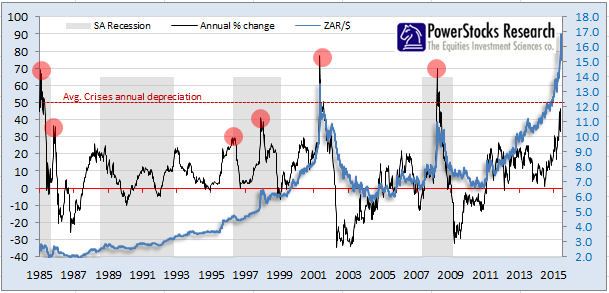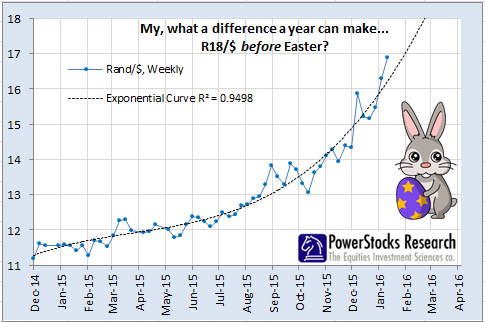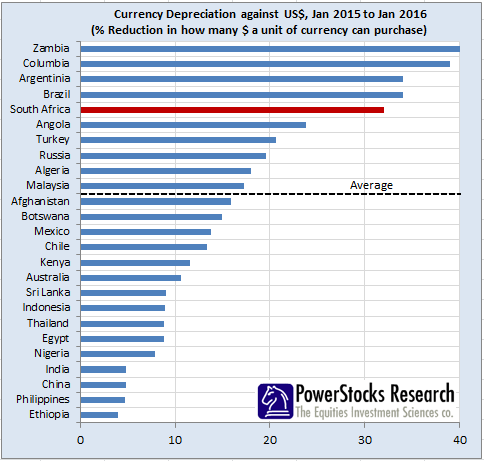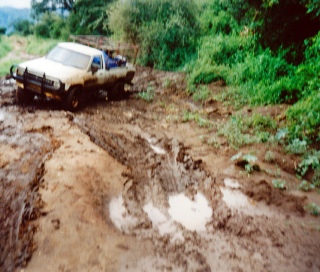The current Rand depreciation
seems to have everyone in a tangle,
except the people that matter.
South African leadership seems to sideswip the issues at hand, and instead of focusing on it, question the markets reaction instead, while some promote the weakness as a positive factor. Counter intuitive given the country’s trade deficit widened to it’s highest gap in 9 months in December, as exports fell 6 percent against a 16 percent increase in imports. Dwaine van Vuuren predicted R18 against the dollar by April 2016 in an article posted last year. And following recent activity he sees the prediction happening slightly sooner. Below is more analysis around the South African Rand and its depreciation, which according to van Vuuren is merely promoting inequality. – Stuart Lowman
By Dwaine van Vuuren*
Less than 6 hours after our last Biznews posting on the Rand in early December, it collapsed to a peak close of R15.3/$ on the back of the sacking of the current financial minister by Jacob Zuma. In that article we predicted R18/$ before Easter (April 2016).
This prediction was based on two factors.
Firstly, the average Rand crises peaked at an average of 50% annual depreciation in the R/$ rate since 1985. This would imply this crises would peak at around R18-R20/$.
The chart below shows the annual depreciation of the Rand as of 12 Jan 2016:

Secondly, the regression trend of the exchange rate hinted at an early April 2016 target date for reaching R18/$.
We have updated this trend to include the more recent tanking of the Rand, which has now brought this target date forward to early March 2016:

Many political figures welcome the Rand depreciation, saying it will boost export competitiveness (make our goods cheaper) but apart from tourism (dealt a heavy policy blow due to the Visa regulations debacle) local mining and manufacturing has failed to benefit from currency depreciation since any positive impact has been heavily outweighed by industrial unrest, the largest private sector investment strike in recent memory (lack of confidence in government policy), crippling power shortages/outages, a slowing world economy and a collapse in commodity prices. Also, we need to bear in mind that manufacturing and mining are each only 12% of our GDP and the growth in SA exports is more a function of global growth and/or commodity demand than merely Rand weakness. To ramp up manufacturing/mining also requires large scale import of machinery – which has to be paid with more Rands – further compounding the problem.
Further compounding our woes, we also import far more than we export (we have a substantial current account deficit) since we are not a goods-producing economy, and these imports have to be paid with a weaker Rand, meaning prices go up for local consumers. South Africa imports almost more than half of its domestic wheat and maize and the current drought will make us import even more. This is staple diet for the less economically fortunate. So whilst steady managed currency deprecation may be beneficial over the long term for an emerging market economy, the violent bouts of uncontrolled depreciation we are seeing now are NET NEGATIVE for the consumer and the economy, particularly the large swathes of less fortunate in SA.
Whilst many commentators and politicians attempt to brush off the Rand depreciation to the surging US Dollar, our position in the TOP-5 falling emerging market currencies shows quite clearly that there are other, mostly policy related and localized issues at hand in our currencies’ demise.

There is an argument that the wealthy and the middle-class, whilst negatively affected by Rand depreciation, can still make plans to cut back on luxuries, holidays, new cars, larger houses, new electronics goods, fancy food, clothes and restaurants, but the lower class and the poor do not have these options at their disposal. Since the underprivileged, unemployed and poor are affected more by rampant currency deprecation1 than anyone else, we can deduce that our unchecked Rand depreciation is merely promoting inequality.
- Dwaine van Vuuren has a Bachelor of Science honours degree and is a full-time trader, investor and stock-market researcher. His passion for numbers and keen research & analytic ability has helped grow RecessionALERT.com and PowerStocks.co.za into companies used by hundreds of hedge funds, brokerage firms, financial advisers and private investors around the world

































